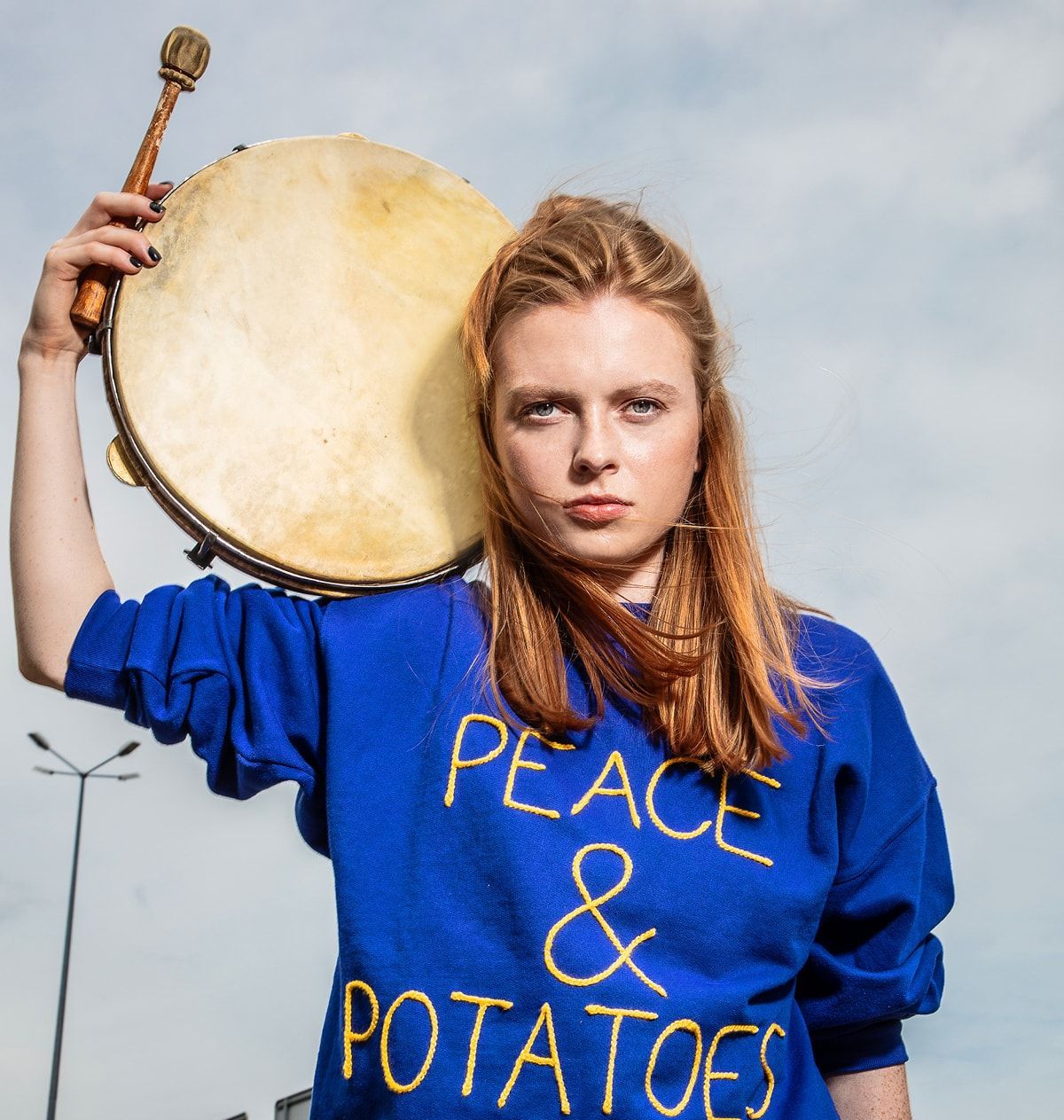
Mothers – a Song for Wartime
Marta Górnicka (Poland)When traditional music meets the political demands of the present, the stage offers a possibility of a newfound community.
The wartime rituals of violence against women never change.
War asks the ultimate questions: about responsibility in the face of danger, and about our defense mechanisms. Out of the testimonies of mothers and children—Ukrainians, Belarusians and Poles: those who have fled war; those who have fled persecution; and, finally, those who have welcomed them in Polish homes—Marta Górnicka, polish director, creator of the CHORUS OF WOMEN and the founder of the Political Voice Institute at the Maxim Gorki Theater in Berlin, creates a choral performance with her ensemble.
“At a time when Ukraine is crying out, we need the theatre with its power of transformation. With its power to remember what is most monstrous. We need CHORUS – its practices of rebirth and recovery.” The chorus of mothers is made up of more than twenty survivors of war – witnesses to violence and bombings. They use the power of their voice to name the unnamable and to defend their cultural roots.
About artist
Marta Górnicka is a director, author, re-discoverer of the choral principle. Graduate of the Drama Directing Department at the Aleksander Zelwerowicz National Academy of Dramatic Art in Warsaw and Frederic Chopin School of Music in Warsaw. Górnicka creates a unique chorus theatre, where voices and bodies of performers, individually and combined, are intrinsically political instruments. She exploits a variety of choral formats to instigate confrontations with unbearable realities. Górnicka uses the stage as a platform to enact discourses of conflict and resolution, creating opportunities for members of communities to air their voices but also recognize each other’s common humanity.
Credits
Actresses: Katerina Aleinikova, Svitlana Berestovska, Sasha Cherkas, Palina Dabravolskaja, Katarzyna Jaźnicka, Volha Kalakoltsava, Ewa Konstanciak, Liza Kozlova, Anastasiia Kulinich, Natalia Mazur, Kamila Michalska, Hanna Mykhailova, Valeriia Obodianska, Svitlana Onischak, Yuliia Ridna, Maria Robaszkiewicz, Polina Shkliar, Aleksandra Sroka, Mariia Tabachuk, Kateryna Taran, Bohdana Zazhytska, Elena Zui-Voitekhovskaya
Concept & direction: Marta Górnicka
Conductor: Agnieszka Piotrowska
Libretto: Marta Górnicka & ansamble (Ukrainians–Belarusians–Poles)
Music: Marta Górnicka, traditional Ukrainian, Belarusian and Polish music, a quotation from Mykola Leontovych’s Shchedryk
Choreography: Evelin Facchini
Stage design: Robert Rumas
Costumes: Joanna Załęska
Musical collaboration: Wojciech Frycz
Dramaturgical collaboration: Olga Byrska, Maria Jasińska
Video, video documentation: Michał Rumas, Justyna Orłowska
Video projections: Michał Jankowski
Lights: Artur Sienicki
Vocal coach: Joanna Piech-Sławecka
Stage manager and director’s assistant: Bazhena Shamovich
Choreographer’s assistant: Maria Bijak
Movement workshop: Krystyna Lama Szydłowska
Ukrainian libretto translation: Olesya Mamchych
Belarusian libretto translation: Maria Pushkina
English libretto translation: Aleksandra Paszkowska
German libretto translation: Olaf Khul
French libretto translation: Cecile Bocianowski
Ukrainian ethnomusicology consultation: Anna Ohrimchuk
Ukrainian children’s games consultation: Venera Ibragimova
In-rehearsal interpreter: Marharyta Huretskaya
Surtitles: Zofia Szymanowska
CHORUS OF WOMEN FOUNDATION
Producers: Marta Kuźmiak, Iwa Ostrowska
Internationaltour producers: Anna Galas- Kosil, Joanna Nuckowska
Production: CHORUS OF WOMEN FOUNDATION (Warsaw), Maxim Gorki Theater (Berlin)
In co-production with: Teatr Powszechny in Warsaw; Festival d’Avignon; Maillon Théâtre De Strasbourg Scène européenne; SPRING Performing Arts Festival (Utrecht); Tangente St. Pölten – Festival Für Gegenwartskultur (Austria)
Partners: Teatr Dramatyczny in Warsaw; Nowy Teatr in Warsaw; For Freedom Foundation in Warsaw (an independent public non-profit working for migrants from Ukraine, Chechnya, Belarus, Tajikistan who have settled in Warsaw); “Przystanek Świetlica” (a recreation center for migrant children and adolescents); The “Sunflower” Solidary Community Center (supporting for the Ukrainian artist community in Warsaw).
This project is co-financed by the capital city of Warsaw and the Minister of Culture and National Heritage from the Culture Promotion Fund, and is carried out in cooperation with the Allianz Foundation.
Homo Novus Festival in cooperation with the Goethe Institute in Riga. Guest performance “Mothers – a Song for Wartime” is financially supported by the Federal Foreign Office of Germany.
Date
Entrance
TicketsLength
Location
Language
Accessibility
Partially accessible
There is a ramp at the main entrance. The glass doors are heavy to open. The hallway on the left side is accessible, without thresholds. The first floor facilities are not adapted. There is a large parking lot with marked parking spaces next to the main building.
Notes
The performance includes information about war violence.